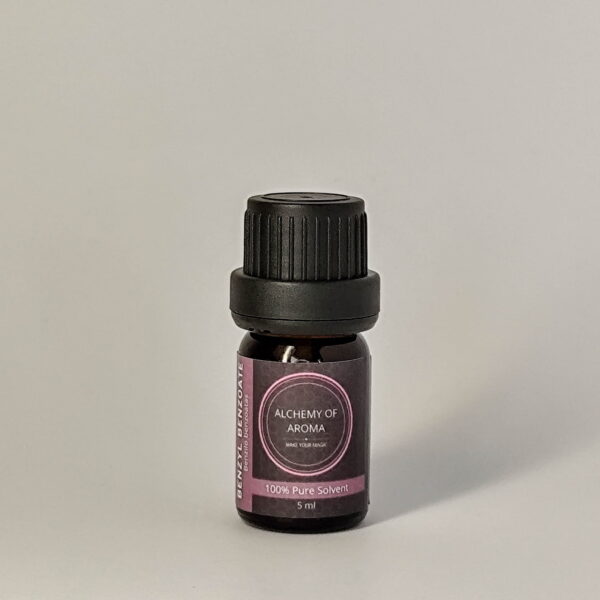- Product description
- Guidelines for perfumery
- Guidelines for aromatherapy
- Safety tips
Coumarin isolate is a fascinating compound known for its distinct chemical structure and myriad properties. Naturally, coumarin is found in various plants, such as tonka beans, sweet clover, and cinnamon. Its distinct sweet and vanilla-like aroma makes it a favored ingredient in perfumes and scented products. This aromatic quality allows coumarin isolate to enhance the olfactory profile, imparting a rich and long-lasting scent.
Uses in Perfumery:
- Fixative: Coumarin acts as an excellent fixative, helping to stabilize and prolong the life of the fragrance on the skin. Its presence can enhance the longevity and persistence of other fragrance components.
- Base Note: In perfumery, coumarin is commonly used as a base note due to its sweet and warm aroma. It adds depth and complexity to fragrance compositions, creating a rich and harmonious blend.
- Gourmand and Oriental Scents: The sweet and vanilla-like character of coumarin makes it a popular ingredient in gourmand and oriental fragrances. It imparts a warm and comforting quality that is often associated with edible and spicy notes.
- Herbaceous and Fougere Accords: Coumarin is a key component in creating herbaceous and fougere accords. Its scent profile complements the green and woody notes typically found in these types of fragrances, providing a fresh yet earthy dimension.
- Blending Ingredient: Coumarin blends well with a wide range of other fragrance materials, including citrus, floral, woody, and spicy notes. This versatility allows perfumers to use it in various scent families to enhance and balance their creations.
- Natural and Synthetic Fragrances: While coumarin is naturally derived from plants like tonka beans, it is also synthetically produced to ensure consistency and availability. Both natural and synthetic coumarin are widely used in the fragrance industry.
Related
Understand the Notes:
- Top Notes: Light, fresh, and evaporate quickly (e.g., citrus oils like lemon and bergamot).
- Middle Notes: The heart of the fragrance, balancing top and base notes (e.g., lavender, rosemary).
- Base Notes: Long-lasting and grounding (e.g., vetiver, patchouli, sandalwood).
Creating a Blend:
- Start with a 30:50:20 ratio of top, middle, and base notes.
- Experiment with different combinations to find your unique scent.
Dilution:
- Always dilute essential oils in a carrier oil (such as jojoba, sweet almond, or fractionated coconut oil) or alcohol (like perfumer’s alcohol) before applying to the skin.
- A common ratio is 15-30 drops of essential oil per 30ml (1 ounce) of carrier oil.
Aging Your Blend:
- Allow your blend to age for at least a few days, preferably a few weeks, to let the scents meld and mature.
- Store in a cool, dark place and shake occasionally.
Inhalation:
- Diffusers: Add 5-10 drops of essential oil to an ultrasonic diffuser filled with water.
- Steam Inhalation: Add 1-2 drops to a bowl of hot water, cover your head with a towel, and inhale deeply.
Topical Application:
- Dilution: Dilute essential oils in a carrier oil before applying to the skin. A common dilution is 2-3 drops per teaspoon (5ml) of carrier oil.
- Massage: Use the diluted oil for a soothing massage. Common areas include the neck, shoulders, and feet.
- Roller Bottles: Fill a roller bottle with a carrier oil and add essential oils. Apply to pulse points like wrists, temples, and behind the ears.
- Patch Test: Before using a new product on your skin, perform a patch test. Apply a small amount of the diluted product to a patch of skin and wait 24 hours to check for any adverse reactions.
- Avoid Sensitive Areas: Do not apply to sensitive areas such as the eyes, ears, mucous membranes, or broken skin.
- Pregnancy and Nursing: Consult a healthcare professional before using our products if you are pregnant, nursing, or have a medical condition.
- Children and Pets: Use caution when using our products around children and pets. Always research or consult a professional regarding safe usage.
- Photosensitivity: Certain essential oils, especially citrus oils like bergamot, lemon, and lime, can cause photosensitivity, increasing the risk of sunburn. Avoid sun exposure for 12-24 hours after applying these oils to the skin.
- Storage: Store in a cool, dark place, away from direct sunlight and heat. Keep them out of reach of children and pets.




